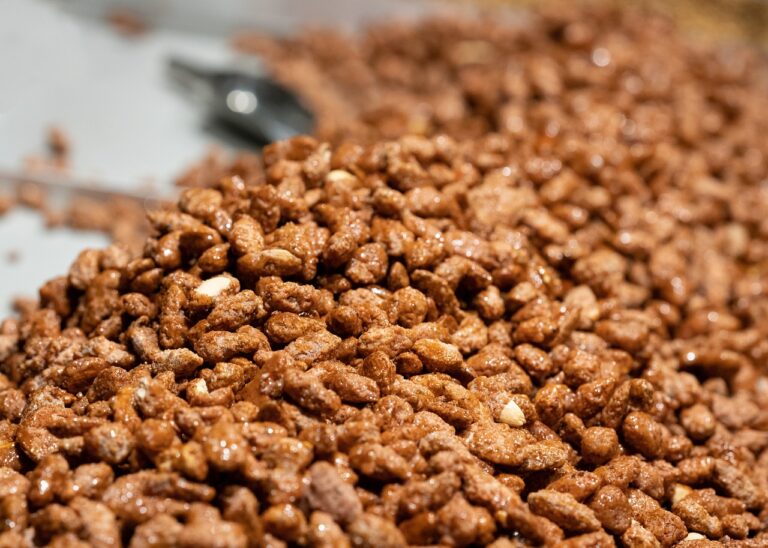Exploring the Benefits of Cranberries in Pet Food for Urinary Health: Allpaanel, Cricket bet 99, Lotus 365.win
allpaanel, cricket bet 99, lotus 365.win: Cranberries are often hailed as a superfood for humans, known for their high levels of antioxidants and potential benefits for urinary health. But did you know that cranberries can also be beneficial for our furry friends? In recent years, cranberries have been increasingly included in pet food formulations, particularly for their potential to support urinary health in pets.
In this blog post, we will explore the benefits of cranberries in pet food for urinary health, discussing how they can help prevent urinary tract infections and other urinary issues in cats and dogs.
Why Cranberries?
Cranberries are rich in antioxidants, including vitamin C, which can help boost the immune system and protect against bacterial infections. In humans, cranberries are often recommended for preventing urinary tract infections (UTIs) due to their ability to prevent bacteria from sticking to the walls of the urinary tract.
For pets, cranberries can offer similar benefits. By preventing bacteria from adhering to the lining of the urinary tract, cranberries can help reduce the risk of UTIs and other urinary issues in cats and dogs. This is particularly important for pets prone to urinary issues, such as older pets or those with certain medical conditions.
What are the Benefits of Cranberries in Pet Food for Urinary Health?
1. Preventing Urinary Tract Infections (UTIs)
One of the most significant benefits of cranberries in pet food is their ability to prevent urinary tract infections (UTIs). UTIs are common in pets, particularly in female cats and dogs, and can cause discomfort and pain. Cranberries can help prevent UTIs by preventing bacteria from adhering to the walls of the urinary tract, reducing the likelihood of infection.
2. Supporting Urinary Health
In addition to preventing UTIs, cranberries can also support overall urinary health in pets. By promoting the health of the urinary tract and bladder, cranberries can help prevent other urinary issues, such as bladder stones or incontinence. Including cranberries in your pet’s diet can help maintain their urinary health and reduce the risk of future issues.
3. Anti-Inflammatory Properties
Cranberries also have anti-inflammatory properties, which can help reduce inflammation in the urinary tract and bladder. Inflammation can contribute to urinary issues in pets, so reducing inflammation can help maintain urinary health and prevent discomfort for your furry friend.
4. Improved Digestive Health
In addition to their benefits for urinary health, cranberries can also support digestive health in pets. Cranberries are high in fiber, which can help regulate digestion and prevent issues such as constipation or diarrhea. A healthy digestive system is crucial for overall wellness in pets, so including cranberries in their diet can have a positive impact on their digestive health.
How to Incorporate Cranberries into Your Pet’s Diet
There are several ways to incorporate cranberries into your pet’s diet to support their urinary health. Many pet food manufacturers now include cranberries in their formulations, particularly in foods for pets with urinary issues or older pets. Look for pet foods that list cranberries as an ingredient, or consider adding fresh or dried cranberries to your pet’s meals as a supplement.
If you choose to add cranberries to your pet’s diet, be sure to do so in moderation. While cranberries are generally safe for pets, too many can cause digestive upset or other issues. Consult with your veterinarian before making any changes to your pet’s diet to ensure that it is appropriate for their individual needs.
FAQs
Q: Can I give my pet cranberry supplements instead of incorporating cranberries into their diet?
A: While cranberry supplements can be beneficial for some pets, it is generally recommended to incorporate whole cranberries into your pet’s diet whenever possible. Whole cranberries contain fiber and other essential nutrients that may be lacking in supplements, providing more comprehensive support for urinary health.
Q: How often should I give cranberries to my pet?
A: The frequency of giving cranberries to your pet will depend on their individual needs and any existing urinary issues. Consult with your veterinarian to determine the appropriate amount of cranberries to incorporate into your pet’s diet for optimal urinary health.
Q: Are cranberries safe for all pets?
A: Cranberries are generally safe for most pets, but it is always best to consult with your veterinarian before adding any new foods to your pet’s diet. Some pets may have allergies or sensitivities to cranberries, so it is important to introduce them gradually and monitor for any adverse reactions.
In conclusion, incorporating cranberries into your pet’s diet can offer numerous benefits for their urinary health. From preventing UTIs to supporting overall urinary health and providing anti-inflammatory properties, cranberries can be a valuable addition to your pet’s wellness routine. Consult with your veterinarian to determine the best way to incorporate cranberries into your pet’s diet for optimal urinary health.







